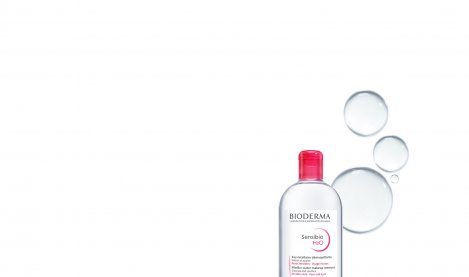The first and absolutely essential step in a skincare routine is cleansing your face. By doing so, you remove all potential pollutants from your skin that contribute to sensitising it. This is so that the cream or care product you then apply can be entirely effective. Indeed, your cleanser and cream work together as a duo: a cream will be that much more beneficial when the skin has been properly cleaned to start with.
Good hygiene, therefore, requires finding effective & respectful cleansing, especially for preserving the skin barrier function. And this is especially the case when skin is sensitive.
The barrier function means the skin is able to stay sufficiently sealed to resist the penetration of irritants and prevent internal water from evaporating.
With sensitive skin, in particular, the barrier function is often deficient. It nonetheless plays an important role, since it is what regulates what penetrates and leaves the skin.
A cleanser for sensitive skin must therefore protect the skin’s balance, in order to protect the effectiveness of the barrier function.














